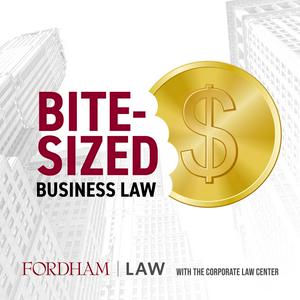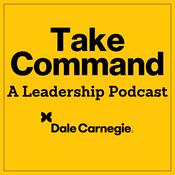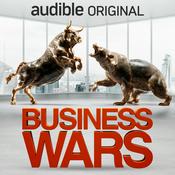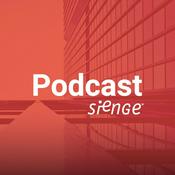88 episódios
- Who should be trusted to govern the most powerful relationships in the economy: markets, managers, or courts? During this conversation, we are joined by two legal scholars, Zohar Goshen and Tomer Stein, whose newest article focuses on the role of specialized corporate courts. Their shared insight is that corporate relationships are inherently incomplete, and no contract can anticipate every future conflict. This is why states establish business courts: to enforce fiduciary duties and resolve disputes, while enabling efficient risk-taking. But something else is at work here: gatekeeping claims and claim dismissal. Join us as we unpack the unique role of specialized business courts, stepping in where shareholder governance ends. We also discuss the Business Judgment Rule, the Delaware Supreme Court’s decision in Tornetta v. Musk, and more!
Key Points From This Episode:
An introduction to our guests and what sparked their shared focus on specialized corporate courts.
Two reasons for any state to establish a corporate court.
Why a corporate relationship can be thought of as an incomplete contract.
How a specialized business court holds unique authority as a third-party participant.
Why shareholders should handle mismanagement on their own, and courts should handle self-dealing cases.
The Business Judgment Rule establishes whether shareholders or courts should intervene.
Why different specialized courts are necessary.
Safeguards to protect too much power being concentrated in the hands of managers.
Whether or not federal preemption is likely or beneficial.
Thoughts on Delaware Supreme Court decision in Tornetta v. Musk.
Links Mentioned in Today’s Episode:
Zohar Goshen
Zohar Goshen on LinkedIn
Zohar Goshen on X
Tomer Stein
Tomer Stein on LinkedIn
Tomer Stein on X
Leaving Delaware? The Essential Role of Specialized Corporate Courts
Fordham University School of Law Corporate Law Center - Billions of dollars are flowing into a new tax strategy known as ETF swap funds, which critics say allow the ultra-wealthy to avoid capital gains tax, legally. The strategy has drawn attention from lawmakers and some academics for testing the limits of existing tax law. In this episode of Bite-Sized Business Law, host Amy Martella speaks with Jeffrey Colon, a professor at Fordham Law whose research focuses on tax and financial law. Jeff is the author of the forthcoming DePaul Law Review article, ‘The Black Hole of Capital Gains: ETF Swap Funds’, examining how ETF swap funds exploit long-standing provisions of the tax code. The conversation begins with a clear explanation of why ETFs are often more tax-efficient than mutual funds. Jeff then breaks down how Section 852(b)(6) allows ETFs to distribute appreciated securities without triggering tax at the fund level, and how techniques like heartbeat trades magnify that benefit. From there, he explains the rise of Section 351 swap funds, which allow investors with highly appreciated stock to diversify while deferring capital gains. Amy and Jeff close by discussing who benefits from these strategies, why they raise fairness concerns, and what recent proposals from Senator Ron Wyden could mean for future reform. Listen in for a comprehensive look at this consequential tax issue and the questions it raises going forward.
Key Points From This Episode:
Introducing Jeffrey Colon and his research focus.
The billions of dollars flowing into ETF swap funds and why they have drawn scrutiny.
How ETFs differ from mutual funds in structure and trading mechanics.
Why ETFs are widely viewed as more tax-efficient than mutual funds.
Section 852(b)(6) and how it provides an advantage to ETFs.
How heartbeat trades move gains out of ETFs without triggering tax.
The rise of tax-motivated ETFs over the past year and a half.
What Section 351 swap funds are and how they operate.
Using swap funds to diversify appreciated stock without selling.
Why these strategies primarily benefit ultra-wealthy investors.
Concerns about fairness and turning income tax into a consumption tax.
Senator Ron Wyden and his proposed legislative responses.
IRS limits and why congressional action may be required.
Risks to the tax system if ETF swap funds continue to expand.
Links Mentioned in Today’s Episode:
Jeff Colon
Jeff Colon on LinkedIn
‘The Black Hole of Capital Gains: ETF Swap Funds’
Ron Wyden
Fordham University School of Law Corporate Law Center - Corporate statements about race have become commonplace, yet they often deliver far less than they promise. In this episode of Bite-Sized Business Law, host Amy Martella speaks with Atinuke Adediran, Professor of Law at Fordham Law School, about her book Disclosureland: How Corporate Words Constrain Racial Progress. Drawing on research at the intersection of business, law, and society, Professor Adediran examines how corporate disclosures shape public understanding of racial inequality, and how companies frequently treat public statements as a stand-in for real action. The conversation addresses the surge of corporate commitments following the murder of George Floyd in 2020, when companies rapidly issued public statements on racial equity after years of relative silence. Professor Adediran introduces the idea of race-conscious image construction, explaining how companies use these statements to build reputations that benefit them, even when meaningful follow-through is limited. The episode also explores the growing pattern of companies revising or removing earlier commitments amid political and legal pressure, a process Professor Adediran calls race-conscious retraction. She closes by explaining why racial progress cannot rely on corporate speech alone and why stronger oversight and accountability remain essential. Listen to the full conversation for a clear, timely examination of how corporate words can shape and limit racial progress.
Key Points From This Episode:
What inspired Disclosureland and Professor Adediran’s research into the inauthenticity of corporate language and its impact on racial progress.
An overview of the wave of corporate statements after George Floyd’s murder.
Examining how rare public disclosures about race were before 2020.
The kinds of racial commitments companies began making during this period.
Why companies turned to disclosure as a response to public and employee pressure.
Defining “race-conscious image construction” and its role in corporate reputation.
How racial disclosures can boost reputation without actually changing internal practices.
The problem of pledges made without context, history, or measurable grounding.
How companies use past statements to block shareholder audits and scrutiny.
Introducing “race-conscious retraction” and what it looks like in practice.
Political and legal pressures driving companies to revise or erase commitments.
How empty commitments and later retraction actively constrain racial progress.
Why federal government involvement is essential for accountability and racial progress.
Links Mentioned in Today’s Episode:
Atinuke Adediran
Atinuke Adediran on LinkedIn
Atinuke Adediran | Fordham Law School
Disclosureland: How Corporate Words Constrain Racial Progress
Amelia Martella on LinkedIn
Fordham University School of Law Corporate Law Center When Companies Act Like Countries: Inside Corporate Power and the Politics of Change
16/12/2025 | 36minWhat happens when corporations start to look and act more like states, including jumping into political debates and providing services that we traditionally expect from government? Matteo Gatti, professor of business law at Rutgers Law School, unpacks his new book, Corporate Power and the Politics of Change, the culmination of years studying how business decisions interact with democratic institutions and social movements. Matteo discusses the history of the corporation from early state-serving charters and infrastructure projects to today’s corporate responsibility debates and culture wars. Matteo introduces his concept of “corporate governing” and explains how corporate speech and corporate action now interact with politics and social movements. The conversation also delves into the incentives and risks for companies that enter into socio-political advocacy, the democratic and institutional costs of relying on corporations to fill public gaps, and why standard corporate governance tools are a poor fit for public governance. Join the conversation to find out what lies ahead for the corporate landscape and what corporate power looks like when companies start acting like countries. Tune in now!
Key Points From This Episode:
How Professor Gatti became interested in the intersection of corporate power and politics.
The evolution of corporations and the role they played in providing public functions.
Hear how a shift in expectations caused companies to engage with socio-economic issues.
Learn what “corporate governing” is and the interplay between corporations and government.
Key drivers behind the rise in corporate advocacy and the cost of remaining silent.
What changes in politics have created a backlash against corporate responsibility.
Explore whether corporate governance is good for democracy and public governance.
Unpack the undemocratic nature of corporate decision-making and its impact on politics.
Why government solutions are more general, stable, and durable than corporate initiatives.
His critique of leveraging tools from corporate governance for solving socio-economic issues.
Lessons about the importance of authenticity, stakeholder expectations, and political risk.
Professor Gatti’s future outlook and his proposals for revitalizing public governance.
Links Mentioned in Today’s Episode:
Professor Matteo Gatti
Professor Matteo Gatti on LinkedIn
Corporate Power and the Politics of Change
European Corporate Governance Institute (ECGI)
Fordham University School of Law Corporate Law CenterThe BitLicense Architect on How It All Began and Where It's All Headed for Crypto Regulation
09/12/2025 | 41minEffective regulation is essential for cryptocurrency to develop successfully! Today, we are joined by New York State’s first Superintendent of Financial Services and the CEO of the Lawsky Group, Benjamin Lawsky, to discuss how the regulatory landscape has evolved since the early days of crypto and where he sees Bitcoin heading next. Tuning in, you’ll hear all about Benjamin’s interesting career, how it led him to where he is today, his initial reaction to the concept of the BitLicense, how the regulations were written, and more. We delve into what the BitLicense is and why it’s important before discussing state versus federal regulation and how regulation has become more challenging over time. Benjamin even tells us how he keeps up with an industry that evolves so quickly. Finally, our guest tells us how he sees crypto evolving in the near future. To hear all this and be inspired to always say yes in the early stages of your career, be sure to press play now!
Key Points From This Episode:
An introduction to today’s guest, Benjamin Lawsky, and an overview of his career.
He tells us what he was doing when the idea of a BitLicense arose and his involvement.
What the BitLicense is, what it does, and the process of writing the regulations.
How the stakes have risen for regulation over time, and state vs. federal regulation.
Benjamin explains how he bridges the expertise void in crypto as a regulator.
Why he loves working with students and the power of always saying yes.
How Benjamin sees cryptocurrency evolving in the near future.
He shares his advice for young lawyers who are interested in this space.
Links Mentioned in Today’s Episode:
Benjamin Lawsky on LinkedIn
Benjamin Lawsky in X
The Lawsky Group
NYDIG
Amelia Martella on LinkedIn
Fordham University School of Law Corporate Law Center
Mais podcasts de Negócios
Podcasts em tendência em Negócios
Sobre Bite-Sized Business Law
Looking for the latest in legal business news? Get a breakdown of the top stories in business law from industry leaders on the front lines with Bite-Sized Business Law. Host Amy Martella takes a closer look at the latest corporate happenings through interviews with the attorneys, legal experts, public figures, and scholars behind the news to distill business law’s biggest stories into bite-sized portions. This is your chance to go further into the world of business law and stay up to date with legal cases and industry trends. Corporations impact us all, leading changes that extend far beyond business to shape the economy, public policy, technology, and beyond. Looking at the big picture, Amy discusses not only the underlying issues in business ethics and legal cases leading the biggest stories but also sparks thought-provoking discussions on where the law should be headed. Amy is the Executive Director of the Corporate Law Center at Fordham University School of Law. Her background ranges from big law to government to tech startups, allowing her to offer an insider’s perspective of the issues that shape corporate actions, large and small. Covering crypto regulation to securities fraud, AI’s impact to Elon Musk’s pay package, Bite-Sized Business Law covers it all with guests of varying viewpoints to provide the nuanced analysis needed to tackle complex problems. Whether you're looking for the latest in legal insight on intellectual property, mergers and acquisitions, business ethics or legal cases in the business law world, you’ll find it here. Enjoying a thoughtful perspective on the news stories of the moment, Bite-Sized Business Law examines big issues and delivers them in small doses. Bite-Sized Business Law is a project by the Corporate Law Center at Fordham Law. The Center serves as a hub for scholars, professionals, policymakers, and students to engage in the study, discussion, and debate of current issues in corporate law. The Center focuses on aspects of corporate law, corporate compliance, antitrust law, and securities regulation. Through initiatives like the Mergers and Acquisitions seminar and the Securities Litigation and Arbitration Clinic, students actively engage in real-world research and cases, bridging the gap between classroom learning and practical application in the legal field.
Site de podcastOuça Bite-Sized Business Law, Os Sócios Podcast e muitos outros podcasts de todo o mundo com o aplicativo o radio.net

Obtenha o aplicativo gratuito radio.net
- Guardar rádios e podcasts favoritos
- Transmissão via Wi-Fi ou Bluetooth
- Carplay & Android Audo compatìvel
- E ainda mais funções
Obtenha o aplicativo gratuito radio.net
- Guardar rádios e podcasts favoritos
- Transmissão via Wi-Fi ou Bluetooth
- Carplay & Android Audo compatìvel
- E ainda mais funções


Bite-Sized Business Law
Leia o código,
baixe o aplicativo,
ouça.
baixe o aplicativo,
ouça.








































